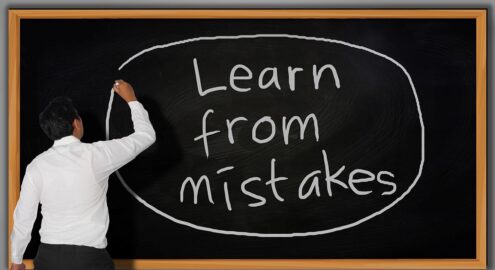Evidence That It Works
Classrooms that view mistakes as a normal part of learning help foster intellectual humility. In this study, researchers surveyed ethnically and racially diverse middle school students in California and New York (55% Hispanic or Latino, 16% Asian, 15% Black, 10% White, and 5% another ethnicity) on intellectual humility and how important learning was in their classrooms, asking about effort, understanding, and the acceptability of mistakes. About two-thirds of students qualified for free or reduced-price lunch. Observers found that in classrooms with mastery-oriented teaching, which emphasized growth mindset and participation, students became more focused on learning and showed greater intellectual humility over time.
In yet another study conducted with ethnically and racially diverse high school students and undergraduates in the United States, researchers found that classroom environments that emphasize intellectual ability stifle intellectual humility. For example, when students perceived a university as focusing on intellectual ability, they viewed the environment as more competitive and were less likely to express intellectual humility by admitting when they did not know something or made a mistake. Therefore, fostering a classroom environment that encourages learning from mistakes can promote intellectual humility.
Additionally, reading or learning about the benefits of intellectual humility, as described in this practice, can increase intellectual humility. In this study, American adults (mean age 36 years) were randomly assigned to read an article encouraging either intellectual humility or intellectual certainty. Participants who read the intellectual humility article reported significantly higher intellectual humility than those who read about intellectual certainty.
Why Does It Matter?
Intellectual humility, or recognizing the limitations of our knowledge, has several benefits for students. Intellectual humility is associated with many prosocial outcomes including higher levels of empathy, gratitude, altruism, and lower levels of power-seeking. Thus, by supporting our students’ growth in intellectual humility, we might be helping them become more helpful toward others.
Intellectual humility is also a strong predictor of open-minded thinking and tolerance toward diverse people and ideas as well as reflective thinking and curiosity. Therefore, cultivating intellectual humility can help our students counter the challenges of narrow, group-based thinking and societal polarization and can help them bridge differences with people they do not necessarily agree with. On a related note, fostering intellectual humility in students can prepare them to counteract misinformation, fake news, conspiracy theories, and pseudoscience-based beliefs.







Comments